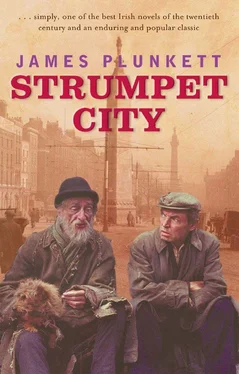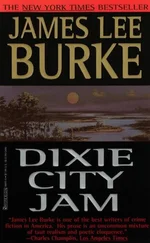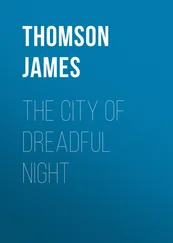‘Notice
The Great St. Gregory has said
It is not Enough to have Learning
These Also are My Sheep.’
‘We have discussed this before,’ Father O’Sullivan said gently. He was embarrassed.
‘We have,’ Father O’Connor conceded, ‘and I am sorry to speak about it again.’
‘If we removed it and Father Giffley returns, he could rightly feel that we took advantage of his illness to flout his authority.’
‘Father Giffley won’t return.’
‘I can only hope you are wrong.’
‘Besides,’ Father O’Connor pressed, ‘all that is over. It no longer serves any purpose whatever.’
‘I agree with you. But it will do no harm to leave it there until he returns.’
‘Among ourselves—no. We are both used to Father Giffley’s extraordinary . . . habits. But what about our guest?’
‘Perhaps he won’t notice it.’
‘He won’t,’ Father O’Connor said irritably, ‘if he happens to be blind.’
Father O’Sullivan said unhappily, but with no sign of changing his mind: ‘I am sorry it should distress you.’
‘I am concerned about Father Boehm,’ Father O’Connor answered. ‘He will suspect us of harbouring some madman with a passion for scrawling on walls. However, I will say no more. After all, he will be right.’
He went off to remind the housekeeper about the finger-bowl.
In the hallway Hennessy debated with himself whether to visit Rashers first or the Fitzpatricks. He decided to leave Rashers until last. He had a drop of whiskey and would stay to share a drink with him and to gossip about the goings on in the city. After that he would go up to his own place and his dinner. There would be a bit of bacon and cabbage to mark the feast day. He looked forward to that.
Fitz himself opened the door to his knock. Mary and the children had gone to mass and to look at the parades. He invited Hennessy to step in.
‘Am I disturbing you?’
‘Not a bit,’ Fitz said, ‘I’m all on my own.’
The room was still bare of any real furniture. But there was a fire in the grate and the table which had been cracked by the raiding police was serviceable. Fitz had improvised chairs out of wooden boxes. He waved Hennessy to one of them.
‘We’re a bit short on decent chairs,’ Fitz apologised.
‘The depredations of the militant months,’ Hennessy remarked sympathetically. ‘I still see them everywhere.’
‘I think things are getting better,’ Fitz said.
‘For some,’ Hennessy agreed.
‘For yourself—I hope.’
‘Yes, indeed,’ Hennessy admitted. ‘I fell on my feet. A steady job as night watchman.’
Fitz smiled.
‘You seem to be a great draw as a night watchman.’
‘It suits my peculiar temperament,’ Hennessy said. ‘I can stay up all night, but early rising never agreed with me.’
He took a cigarette packet from his pocket and offered one to Fitz. He kept talking as he did so. He was anxious to share his riches without drawing any notice to the fact that circumstances had for the moment reversed their respective roles of giver and receiver.
‘It’s a tidy little job and of course—all bona feedy and above board. No trouble about the union. In fact I called to ask you about joining up.’ He thought a moment and then added, ‘Of course it would have to be on the Q.T.—for the moment.’
‘There’s no trouble about that,’ Fitz said, ‘just call down to number one branch in Liberty Hall. Say I sent you. You’ll get a card right away.’
‘And I can keep it quiet for the moment so far as the job is concerned?’
‘A lot of us have to do that,’ Fitz told him.
‘That suits up to the veins of nicety,’ Hennessy decided.
He had left his bowler on the table. He now stood up to retrieve it. It was, Fitz remembered, a size or so too large for his head, the overcoat too broad for his light body. Hennessy fumbled for some time in the pocket of the overcoat and produced a paper bag.
‘It’s a few sweets for the children,’ he explained, handing the bag to Fitz.
‘You’re a strange man,’ Fitz commented, ‘spending your few shillings on these.’
‘Now, now,’ Hennessy said, ‘they cost nothing. A little treat for St. Patrick’s Day.’
‘They’ll be delighted,’ Fitz assured him.
Hennessy put the bowler back on his head, using his ears as wedges to prevent it from falling down over his eyes. He had completed his business. Fitz saw him to the door.
‘Hennessy,’ he said, ‘I’m glad to see you fixed up. It wasn’t a pleasant experience having to stop you in your last job.’
‘All’s fair in love and war,’ Hennessy said agreeably.
‘Your wife didn’t think so.’
‘She was a bit put out,’ Hennessy admitted.
‘I didn’t blame her.’
‘Women seldom appreciates a principle.’
‘A lot of men have the same failing.’
‘That’s why I hope I can claim a modest place among the trusted and the true.’
‘You can,’ Fitz assured him.
Hennessy looked pleased.
‘Well, then. I’d better be leaving. I’ve to see Rashers and then go up to my dinner. I have a few sweets for him as well. You’d be hard set to decide which of them has the sweeter tooth—himself or his dog.’
Fitz smiled and held open the door. A thought struck him.
‘By the way,’ he said, ‘what sort of a place is it you’re doing the watching in?’
Hennessy hesitated. Then, with an air of apology he said:
‘Well—as a matter of fact—it’s a sweet factory.’
‘I see,’ Fitz said gravely.
He had been right. The expropriators were being expropriated.
Hennessy checked his pockets to be sure he had the sweets and that the drop of whiskey was still safe. It was. He anticipated a complaint from Rashers for not having visited him for so long. The new job and the night work had upset his routine. The whiskey would heal the breach. Maybe Rashers would be out in the streets, selling badges or playing his whistle to the crowds. If so he could go up for his dinner and call on him later. He went down the stairs into the hall again. A cold blast of air flowed from the streets through the open door. He went through the hall towards the backyard where a sack hung in place of the original door of the outside privy, then turned to descend the stairs that led down to the gloom of the basement. He expected the dog to start barking. There was silence. He hesitated in the half-dark, convinced now that Rashers was out. As he waited he noticed, for the first time, a heavy smell. It was not the usual smell of damp earth and decaying woodwork. It was sweet and sickly and, it seemed, intermittent. A thought struck him which made his blood turn to ice. He groped for his matches, lit one, held it above his head. The door to Rashers’ den was closed. He lit another match and slowly opened it. A stench of decay flowed out and choked him. He was certain now.
‘Jesus protect us,’ he said.
Through the window with its broken sheets of cardboard that flapped in the wind a feeble light entered the room. He forced himself to investigate, crossing the floor fearfully, step by step.
The Reverend Ernst Boehm proved both amicable and talkative. He said nothing at all about the notice on the wall. Perhaps he did not see it. He wore the thick glasses of the scholar with lenses that looked like the bottoms of twin jamjars. But he remarked appreciatively on each course as it was served and he praised the wine without reservation. Father O’Sullivan was delighted, Father O’Connor was proud. The huge fire blazed cheerfully in the grate, the dishes and the glasses reflected its red and yellow flames. Their faces above the shining white tablecloth were slightly flushed. St. Brigid’s was enjoying a rare moment of elegance.
Читать дальше












